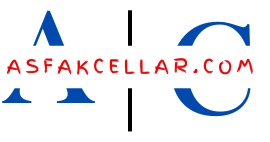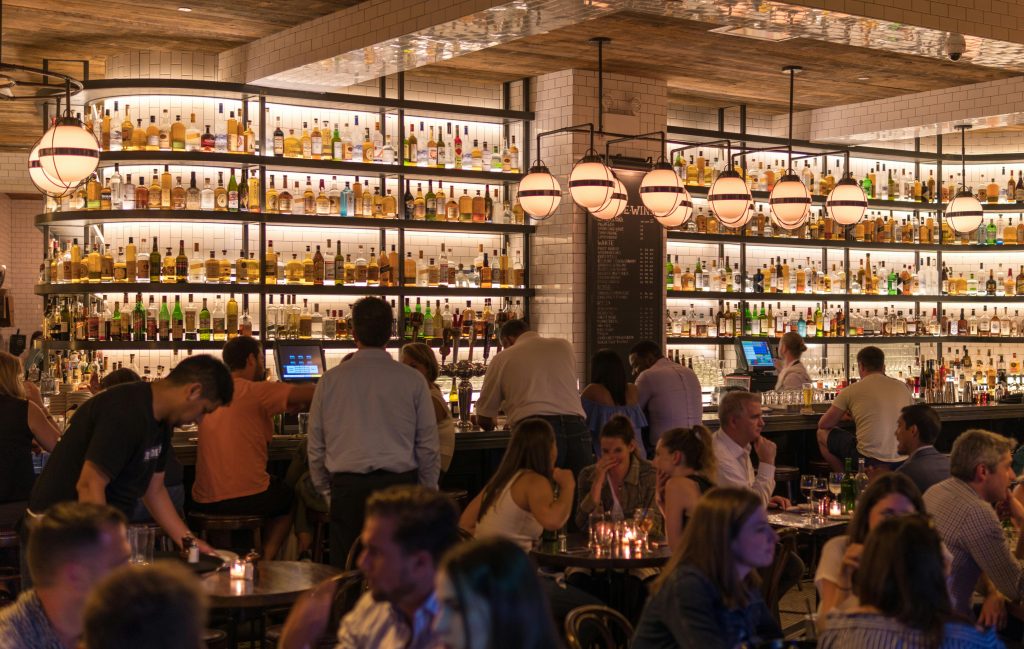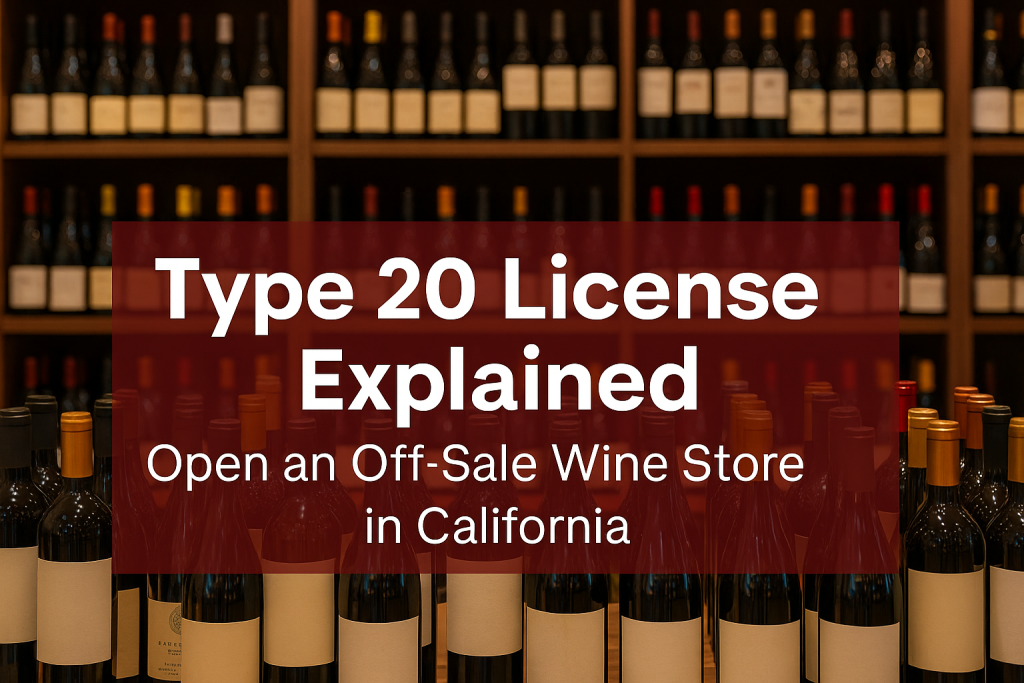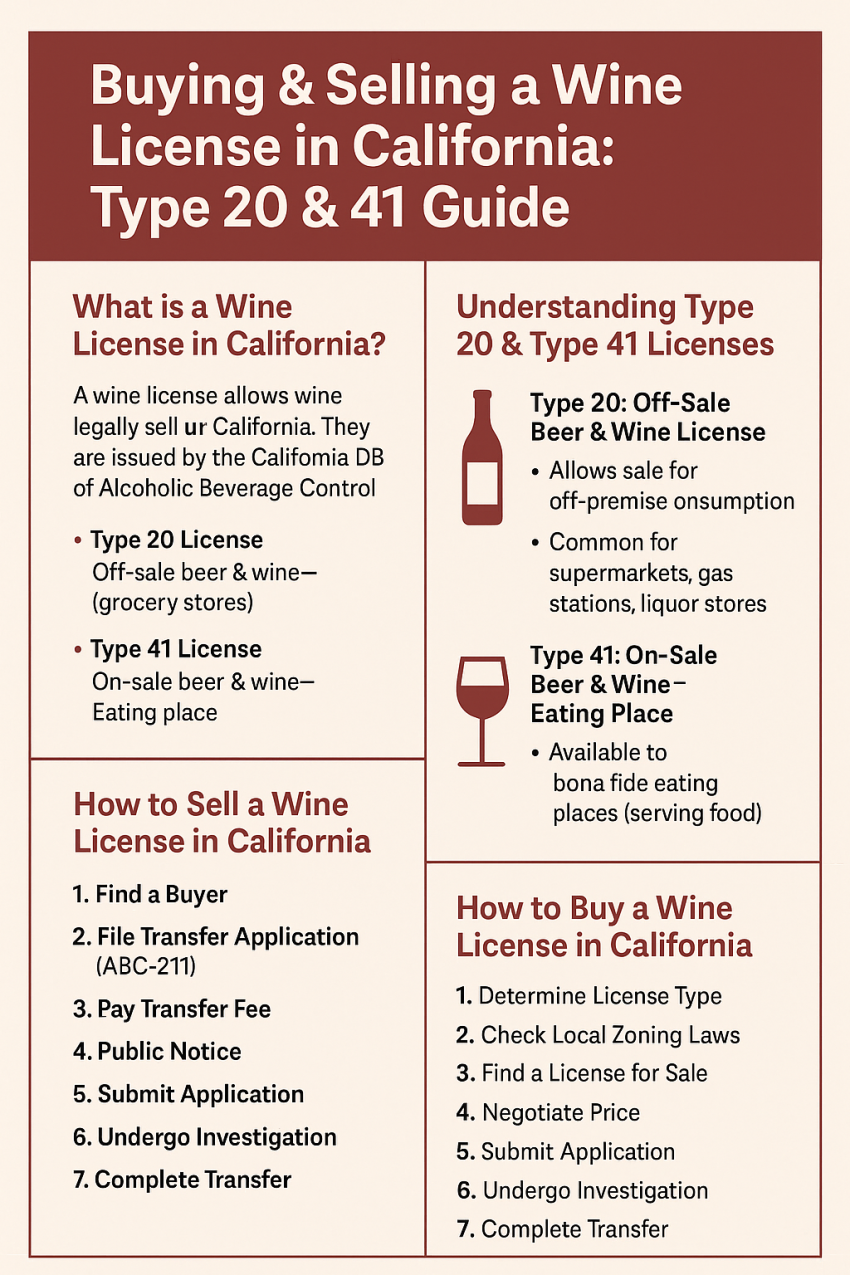If you’re planning to buy or sell a wine license in California, understanding the process, license types, and state regulations is crucial. California’s thriving wine culture and hospitality industry make wine licenses a valuable asset. In this guide, we’ll focus on Type 20 (Off-Sale Beer & Wine) and Type 41 (On-Sale Beer & Wine—Eating Place) licenses—two of the most common wine licenses in the state.
Whether you’re a restaurant owner, retailer, or investor, this article will walk you through the complete process of buying or selling a wine license legally in California.
✅ What is a wine license in California?
A wine license allows a business to sell wine in California legally. These licenses are issued by the California Department of Alcoholic Beverage Control (ABC). The two most commonly transferred wine licenses are
- Type 20 License—Off-sale beer and wine (e.g., grocery stores, convenience stores).
- Type 41 License—On-sale beer and wine for restaurants serving food.
📝 Why Buy or Sell a Wine License?
Why Buy?
- Limited availability: Some licenses have quotas, making them valuable.
- Avoid waiting for new licenses: Purchasing an existing license speeds up business launch.
- Immediate operation: Start selling legally faster.
Why Sell?
- Generate capital: Businesses closing or pivoting can earn substantial value by selling.
- License appreciation: In high-demand areas like Los Angeles or San Francisco, prices can rise.
- Transfer opportunities: Sellers can pass licenses to new owners or businesses.
📌 Understanding Type 20 & Type 41 Licenses
🍷 Type 20: Off-Sale Beer & Wine License
- Allows sale of beer and wine for off-premise consumption.
- Common for supermarkets, gas stations, and liquor stores.
- No spirits or hard liquor allowed.
- Cannot sell for on-site consumption (e.g., wine tastings not permitted).
🍽️ Type 41: On-Sale Beer & Wine—Eating Place
- Allows on-premise consumption of beer and wine.
- Only available to bona fide eating places (serving full meals).
- No distilled spirits allowed.
- Great for cafes, restaurants, bistros, and diners.
🔁 How to Sell a Wine License in California
Selling a wine license involves transfer through the ABC and may include a private sale, broker, or auction.
Step-by-Step Process:
- Find a Buyer
- Use online marketplaces, brokers, or ABC-licensed agents.
- Ensure buyer eligibility: clean background, U.S. residency, age 21+.
- File Transfer Application (ABC-211)
- Apply through the ABC portal.
- Include both buyer and seller information.
- Pay Transfer Fee
- Transfer fees range from $100 to $1000+, depending on license type.
- Public Notice & Investigation
- ABC posts a Notice of Application at the business location for 30 days.
- Background checks and location suitability reviews occur.
- License Approval
- Once approved, ABC issues a license to the new owner.
- Timeframe: 30–90 days, depending on the area and application accuracy.
🛒 How to Buy a Wine License in California
1. Determine License Type
- Type 20: Off-sale wine.
- Type 41: On-sale wine in restaurants.
2. Check Local Zoning Laws
- City or county zoning must permit alcohol sales.
- Consult planning departments before purchase.
3. Find a License for Sale
- ABC License Exchange (https://www.abc.ca.gov)
- Private brokers and marketplaces
- Networking in local business circles
4. Negotiate Price
- Factors influencing price:
- Location
- Demand (urban vs rural)
- Previous violations
- License availability
- Average prices:
- Type 20: $2,000–$25,000
- Type 41: $5,000–$50,000
5. Submit Application
- Buyer and seller must jointly submit to ABC.
- Include a business license, lease agreement, and personal history form.
6. Undergo Investigation
- ABC will investigate financial background, criminal record, and business plan.
7. Complete Transfer
- Upon ABC approval, the license is legally transferred.
📊 Wine License Transfer Timeline
| Process | Estimated Duration |
|---|---|
| Buyer & Seller Negotiation | 1–3 weeks |
| Application Submission | 1–2 days |
| Public Notice Period | 30 days |
| ABC Investigation | 2–8 weeks |
| Final Transfer Approval | 1–2 weeks |
Total Time: 6–12 weeks on average
💵 Wine License Costs and Fees
| Type | Initial Cost | Transfer Fee | Renewal Fee |
|---|---|---|---|
| Type 20 | $2,000–$25,000 | $100 | $215 annually |
| Type 41 | $5,000–$50,000 | $100 | $500 annually |
Other potential costs:
- Escrow services
- Broker commissions (2%–10%)
- Zoning and city permits
📑 Documents Needed to Buy or Sell
- ABC Form 211 (Application for Alcoholic Beverage License)
- Lease agreement or property deed
- Business entity documents (LLC, Corp., etc.)
- Seller’s permit (from CDTFA)
- Personal history form (ABC-208)
- Financial statements or proof of funds
📌 Can You Sell a Wine License Like Real Estate?
Yes, in many cases. Wine licenses—especially in quota counties—are considered transferable property assets. You can:
- Sell it privately to an interested buyer
- Use a broker to list the license
- Auction it in high-demand areas
- Include it in a business sale (e.g., selling your restaurant with the license attached)
⚖️ Legal Tips for Wine License Transfers
- Always work with a licensed alcohol attorney or ABC broker.
- Verify that the buyer meets moral character and residency requirements.
- Never transfer without ABC approval—illegal transfers can result in license revocation.
- Use escrow services to handle funds safely during the sale.
- Ensure local zoning is compatible before finalizing a deal.
📍 Where to Get Help
- California Department of ABC
Website: https://www.abc.ca.gov
Phone: 1-916-419-2500 - Alcohol License Brokers
Search “California ABC license broker” or use BizBen.com - Local ABC Offices
Visit your county ABC office for specific regional help.
🔄 Can You Upgrade a Wine License?
Yes. You can upgrade from a Type 41 to a Type 47 license (which allows hard liquor) by:
- Filing an Application for Modification.
- Paying the difference in fees.
- Undergoing a new public notification period.
🚀 Final Thoughts
Buying or selling a Type 20 or Type 41 wine license in California is a strategic move in the state’s booming food and beverage industry. With clear regulations, transferable value, and growing consumer demand, these licenses are more than permits—they’re assets that can boost your business value.
Make sure you follow all ABC laws, verify zoning, and consult professionals for a smooth transfer. Whether you’re opening a wine shop or selling a long-standing café, the right license is your key to legal, profitable wine sales in California.




